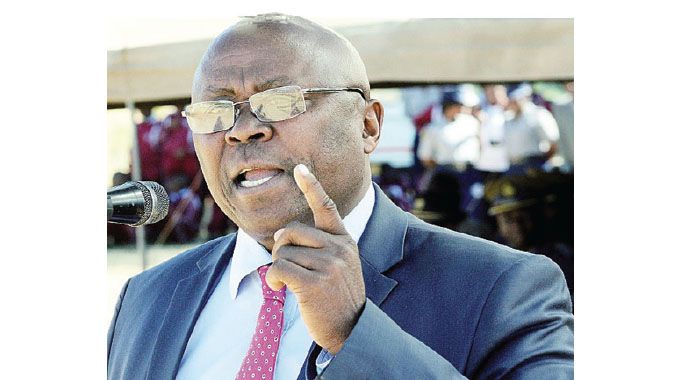
Teddy Ncube, Sunday News Correspondent
THROUGHOUT Zimbabwean history, our nation has grown and prospered when all Zimbabweans have shared in the opportunities created by our economy. Despite all the challenges in our world, Hon Cain Mathema believes that this is still the road to prosperity.
He believes that we must create bottom up growth that empowers hard working families to climb the ladder of success and raise their children with security, opportunity and hope for a better future. This article will exclusively view the case of development using Hon Cain Mathema’s poem titled The Mud Hut written in 1975 and first published in 1981 in a book called, “and now the Poets speak”.
But, before we go further, let me start by mentioning that Hon Cain Mathema has always been vocal about development. In this poem, Hon Cain Mathema narrates the reasons why he joined the liberation struggle in 1968.
Chief among these reasons was his strong desire to see Zimbabweans being lifted from poverty and being given equal access to dividends of economic growth.
Hon Cain Mathema who is by no mistake an accomplished politician and scholar of statecraft argues convincingly that Zimbabwe needs to declare a war on poverty. A call that draws lessons from the new dispensation’s thrust to create a middle-income economy by 2030. This view is aptly captured by the National Development Strategy (NDS1) document which identifies infrastructural development as one of the key vectors of economic development.
What is even more interesting is that the author who in 1975 was fighting for an opportunity to serve in the development of Zimbabwe, is today part of the Government that has succeeded in revamping the economy in a way that has charmed many (as argued in reports by the World Bank and the International Monetary Fund, etc.).
In the poem The Mud Hut, Hon Cain Mathema vehemently calls for increased interest in infrastructural development. The author outrightly rejects the mud hut which according to many, is a hallmark of abject poverty. To Hon Cain Mathema, the mud hut is also a reminder of how the majority in Zimbabweans were exploited for labour by the colonialists hence forcing them to retire into abject poverty characterised by mud huts. The poem does not only dismiss the mud hut as an unfit habitat but, the poem also re-engineers one’s mind to hate the mud hut and imagine the different types of opportunities associated with infrastructural development.
However, before I delve deeper into the poet’s mind, let me take time to clarify some of the philosophical implications of Hon Cain Mathema’s poem. Firstly, the poem is by no mistake a reflection of the author’s thinking and most importantly the environment which immediately influenced his thinking. The poem was written during the armed struggle when the author himself was still an armed guerilla in the battlefield. Therefore, the poem broadly reflects the factors that led the author to join the armed liberation struggle.
Chief among those factors was the desire to see a prosperous Zimbabwe were all have an equal opportunity to lift themselves out of poverty. The poem also reflects the author’s commitment to the cause of developing Zimbabwe. A contrast of the author’s claims in the poem and the countless development initiatives he is associated with, can only reveal the author’s ever increasing appetite for a prosperous Zimbabwe.
Most importantly, the poem engages some of the most dangerous counter revolutionary narratives propagated mainly by neo-colonial proponents who have worked overtime to convince each other that former colonies are incapable of working for themselves. Contrary to this view, Hon Cain Mathema’s poem suggests that, the armed liberation struggle was not the end itself, instead, he argues that the ethos of liberation struggle was to give everyone an equal opportunity to “develop” themselves, and the environment around them.
For someone who was writing a poem with one hand while the other was holding a gun, it shows clearly that the armed liberation struggle was fought by men and women who wanted to work for the development of Zimbabwe.
Since this month belongs to Father Zimbabwe, Umdala wethu Dr Joshua Mqabuko Nyongolo Nkomo, also known as Big Josh, it is only fair that I close by contrasting Hon Mathema’s poem with Dr Joshua Nkomo’s words in 1980 who like Hon Cain Mathema had a high appetite for development.
“I want thousands of youths to join in tilling the land so that we can turn this country into a garden. Those who are looking for jobs in factories in town are looking in the wrong places” Dr. Joshua Nkomo, 1980
Tedious Teddy Ncube is a Political scientist and Public Policy Analyst.